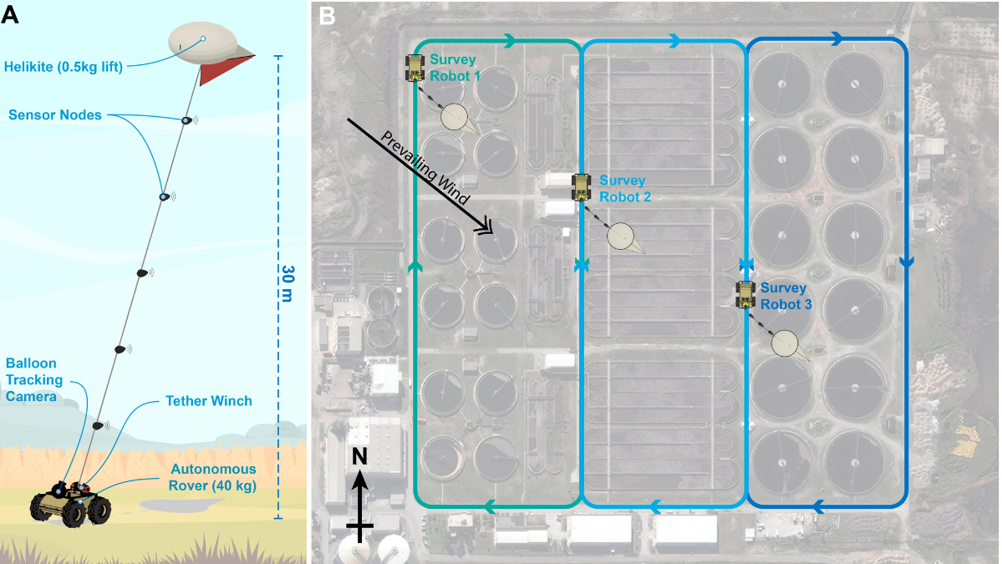The research team will develop new, lightweight wireless gas sensors to monitor emissions, which will be attached to helium kites flown by autonomous robots.
University spin-out company Surrey Sensors Ltd will build the sensors, while Hampshire's Allsopp Helikites Ltd will provide the helium balloons. The University also said it will work with several local businesses.
In a statement, Dr Robert Siddall, lecturer in Robotics at Surrey University, said: “If the world is to reach net zero, we need to be able to check that emissions really are reducing. Previous projects tried to use drones to monitor gas flux – but the quality of their measurements wasn't good, their flight time was too short, and airspace restrictions limited their use. Our robot balloon towers, kitted out with sensors and built here at Surrey, should solve many of these challenges.”
The project will combine a range of skills from across the University, from fluid dynamics to building robots, analysing data and sensing emissions.
Researchers said the technology will be tested in a variety of locations – including Thames Water treatment works, the University’s land at Blackwell Farm Guildford, and rice paddies in Spain.

“The UK water sector faces huge challenges in achieving net zero. One of the biggest issues is that wastewater treatment systems produce methane and nitrous oxide. These have a much greater warming potential than carbon dioxide. We don't have an accurate and affordable way to monitor these emissions. Our project will create innovative tools for the industry to achieve net zero,” said Dr Bing Guo, senior lecturer in Civil and Environmental Engineering, Surrey University.
The Spanish rice paddy project will benefit from the remote sensing support of Mantle Labs Ltd, and Eurecat Centre Tecnològic, Spain.
“Rice farming is one of the main methane emitters worldwide and farmers can access financial incentives for implementing emission reduction practices. We are currently using satellite images to monitor whether these practices are being implemented around the world, and using simulation models to estimate the emission reductions achieved,” said Dr Belen Marti-Cardona, associate professor (reader) in Earth Observation and Hydrology, Surrey University.
This is one of 13 projects nationwide to be funded by a £12m investment from UKRI's Natural Environment Research Council, Defra and Innovate UK.
The research will support UN Sustainable Development Goal (SDG) 13 (climate action).











Radio wave weapon knocks out drone swarms
Probably. A radio-controlled drone cannot be completely shielded to RF, else you´d lose the ability to control it. The fibre optical cable removes...